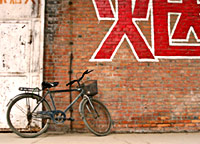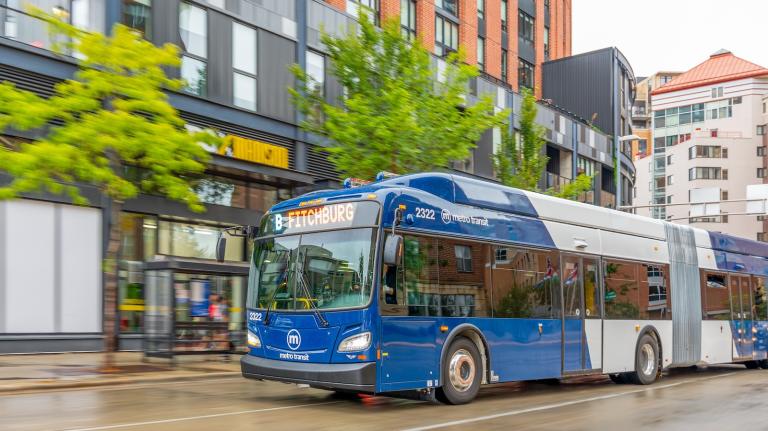 So, in case you haven’t heard, China’s economy has been growing a wee bit. The boom has fueled growth in incomes and is largely responsible for the attendant explosive growth in auto sales and use. Huge growth. The number of cars has grown over 20 times since 1978 and is expected to balloon another five times still by 2020.
So, in case you haven’t heard, China’s economy has been growing a wee bit. The boom has fueled growth in incomes and is largely responsible for the attendant explosive growth in auto sales and use. Huge growth. The number of cars has grown over 20 times since 1978 and is expected to balloon another five times still by 2020.
Meanwhile, bicycle ridership has fallen at roughly the same rate as auto use has grown, and city planners and officials, eager to keep the boom booming, even at great public cost, have been planning to welcome the auto’s continued growth and popularity with more roads.
And though the U.S. still out-cars (and out-roads) China by a wide margin, China’s rapid growth has led to bicycles literally being left by the wayside. Urban planning has turned them into seeming second-class forms of transport. (This sounds familiar, America. As Ginsberg might have said: “America, you’ve given cars all and now cyclists are nothing.”)
But back to China. As the Guardian puts it:
Having spent the past decade pursuing a transport policy of four wheels rich, two wheels poor, the Chinese government has suddenly rediscovered the environmental and health benefits of the bicycle.
As described in the state media, apparently the government is finally trying to do something about the unhealthy shift to autos.
China’s Vice Minister of Construction, Qiu Baoxing, has lashed [out] at city authorities for making it harder for cyclists to get around, saying the country should retain its title as the “kingdom of bicycles.”
The fight to retain that title is being taken to the actual streets, which have been rapidly abandoning bike lanes in favor of thousands of miles of sprawling, dangerous-to-cyclists, car-centric roads.
The Ministry of Construction is firmly opposed to the elimination of bicycle lanes and has ordered cities to restore them, [Qiu] said.
Just as importantly, the country is also reportedly considering disincentives for drivers.
Qiu said worsening traffic jams and air pollution won’t lead the government [to] restrict car ownership but it may discourage driving by charging fees to drive downtown.
Wo ai ni, China.
 So, in case you haven't heard, China's economy has been growing a wee bit. The boom has fueled growth in incomes and is largely responsible for the attendant explosive growth in auto sales and use. Huge growth.
So, in case you haven't heard, China's economy has been growing a wee bit. The boom has fueled growth in incomes and is largely responsible for the attendant explosive growth in auto sales and use. Huge growth. 

